Real Estate Creative Finance Strategies
6 min read


1. Gator Method
Explanation:
The Gator Method, popularized by Pace Morby, is a creative financing strategy that focuses on using Earnest Money Deposits (EMDs) and transactional funding to facilitate real estate deals, particularly for wholesalers or investors with limited capital. It involves providing short-term capital to secure properties, often through double-closing transactions, where the investor briefly owns the property before reselling it, sometimes within the same day. The goal is to achieve high returns (often exceeding 500%) by structuring deals strategically while minimizing personal financial risk. This method is ideal for newer investors in fast-paced markets who need quick access to funds for EMDs or to close deals without traditional financing.
Key Components:
Earnest Money Deposit Training: Learn how to use EMDs to secure deals with minimal upfront capital. Includes a Risk Assessment Checklist to identify when to lend and avoid risky deals (e.g., spotting four red flags).
Double Closing: Borrow funds from non-traditional lenders to purchase a property and resell it quickly, often on the same day, to avoid long-term ownership.
Due Diligence Package: Includes step-by-step checklists and resources to streamline transactions and ensure smooth closings.
Negotiation and Deal Structuring: Techniques to "name your price" and structure deals for high profitability.
Bonuses: Access to tools like the Flip Calculator, Maximum Allowable Offer (MAO) Calculator, Unicorn Realtor Training (to secure deals in under two hours), and Corporate Credit Coaching to use other people's money (OPM) for funding.
Community Access: Unlimited access to private "Gator Only" Discord and Facebook communities for networking and deal sourcing.
Use Case: Ideal for wholesalers or investors in competitive markets who lack immediate capital but have strong networks and negotiation skills. It allows them to secure high-potential properties without traditional financing delays.
2. Bird Dog
Explanation:
The Bird Dog strategy involves acting as a deal scout who identifies and refers potential real estate opportunities to investors or wholesalers for a finder’s fee or commission. Bird dogs do not typically purchase properties themselves but instead leverage their local market knowledge and relationships to locate distressed or off-market properties that align with an investor’s criteria. Pace Morby emphasizes building relationships with agents, title companies, and other industry professionals to source these deals effectively.
Key Components:
Market Research: Develop a deep understanding of local real estate markets to identify undervalued or distressed properties.
Networking: Build connections with real estate agents, wholesalers, and title companies to uncover off-market deals.
Deal Referral: Pass vetted deals to investors or wholesalers, earning a finder’s fee (typically a flat fee or a percentage of the deal).
Low Risk: Requires minimal capital since the bird dog does not purchase or finance the property.
Skill Development: Learn to analyze properties for potential profitability and negotiate terms for referrals.
Use Case: Perfect for beginners with limited funds who want to enter the real estate industry by leveraging their time and local knowledge. It’s a low-risk way to earn income while learning the market.
3. Subject-To (SubTo)
Explanation:
The Subject-To strategy involves purchasing a property by taking over the seller’s existing mortgage payments while the mortgage remains in the seller’s name. The investor gains control of the property without needing to secure a new loan, making it an attractive option for motivated sellers (e.g., those facing foreclosure or financial distress) or when traditional financing is unavailable. Pace Morby is a leading advocate for this creative financing method, emphasizing its ability to acquire properties with little to no money down.
Key Components:
Taking Over Payments: The buyer assumes responsibility for making the seller’s mortgage payments without formally assuming the loan.
Motivated Sellers: Targets sellers who need to offload properties quickly due to financial or personal challenges.
Low Upfront Costs: Requires minimal capital, as the existing mortgage stays in place.
Due Diligence: Requires careful review of the mortgage terms and property condition to ensure profitability.
Community Support: SubTo community provides resources, training, and networking to execute these deals effectively.
Use Case: Ideal for investors looking to acquire properties without traditional financing or significant upfront capital. It’s particularly effective in markets with motivated sellers or when conventional loans are hard to obtain.
4. Seller Financing
Explanation:
In Seller Financing, the property seller acts as the lender, allowing the buyer to make payments directly to them over time instead of securing a traditional bank loan. This strategy is part of Morby’s creative financing toolkit and is often used in conjunction with Subject-To or the Gator Method. It provides flexible purchase terms, making it easier for investors to acquire properties without relying on banks.
Key Components:
Flexible Terms: Negotiate payment schedules, interest rates, and terms directly with the seller.
No Bank Involvement: Bypasses traditional lending requirements, such as credit checks or large down payments.
Targeting Motivated Sellers: Focus on sellers willing to finance the deal to offload their property quickly.
Deal Structuring: Structure payments to align with the investor’s cash flow, often resulting in lower upfront costs.
Legal Guidance: Morby’s programs provide training on necessary paperwork and compliance to ensure secure transactions.
Use Case: Suitable for investors who want to acquire properties with minimal upfront capital and flexible terms, especially when dealing with sellers open to creative solutions.
5. Private Money Partnerships
Explanation:
This strategy involves partnering with private lenders or individuals who provide capital for real estate deals in exchange for a return on investment. Pace Morby emphasizes building relationships to access Other People’s Money (OPM) to fund acquisitions, reducing personal financial exposure. This approach is often integrated with the Gator Method or other creative financing strategies.
Key Components:
Relationship Building: Connect with private lenders, such as friends, family, or industry contacts, who have capital to invest.
High Returns: Structure deals to offer lenders attractive returns (e.g., interest payments or profit-sharing).
Risk Mitigation: Use Morby’s risk assessment frameworks to evaluate deals and reassure lenders.
Networking Communities: Leverage Morby’s private Discord and Facebook groups to find private money partners.
Transactional Funding: Use short-term private loans for quick deals, such as those in the Gator Method.
Use Case: Ideal for investors who lack personal funds but have strong networks and the ability to structure mutually beneficial deals. It’s a key component of scaling a real estate portfolio without relying on personal capital.
6. Wholesaling
Explanation:
Wholesaling involves securing a property under contract at a below-market price and assigning the contract to another buyer (typically an investor) for a fee. While not unique to Pace Morby, he integrates wholesaling into his creative financing framework, often combining it with the Gator Method or Subject-To strategies to maximize profitability.
Key Components:
Contract Assignment: Secure a purchase contract and assign it to an end buyer for a fee (typically $5,000–$20,000 or more).
Finding Deals: Focus on distressed properties or motivated sellers through direct marketing, networking, or bird dogging.
Minimal Capital: Requires little to no personal funds, as the investor does not typically close on the property.
Negotiation Skills: Strong negotiation is key to securing low purchase prices and attractive assignment fees.
Bonuses: Morby’s programs include Wholesale, JV, and Assignment Contracts to protect deals and streamline the process.
Use Case: Perfect for beginners or investors with limited capital who want to generate quick cash flow by connecting sellers with buyers. It’s a low-risk entry point into real estate investing.
7. Joint Ventures (JV)
Explanation:
In a Joint Venture, two or more parties collaborate on a real estate deal, pooling resources, skills, or capital to achieve mutual success. Pace Morby’s Gator Method includes training on JV strategies, emphasizing partnerships to access deals, funding, or expertise. This approach leverages complementary strengths to close larger or more complex deals.
Key Components:
Partnership Agreements: Use Morby’s provided contracts to formalize roles, responsibilities, and profit-sharing.
Networking: Connect with other investors, lenders, or professionals through Morby’s community platforms (e.g., Discord, Facebook).
Resource Sharing: Combine capital, market knowledge, or operational skills to execute deals.
Training: Morby’s programs include specific modules (e.g., “Intro to JV + EMD” and “JV + EMD – Check Your Risk”) to guide investors through the process.
Use Case: Suitable for investors who want to scale their business by partnering with others who have complementary resources or expertise, such as lenders or experienced operators.
8. Lease Options
Explanation:
A Lease Option allows an investor to lease a property with the option to purchase it at a later date, often at a pre-agreed price. This creative financing strategy is part of Morby’s toolkit and is used to control properties without immediate purchase, providing flexibility and low upfront costs.
Key Components:
Lease Agreement: Rent the property with a standard lease while securing the right to buy it later.
Option Fee: Pay a small upfront fee to secure the purchase option, which is often non-refundable.
Motivated Sellers: Target sellers who are open to creative terms, such as those unable to sell traditionally.
Exit Strategies: Use the lease period to generate rental income, improve the property, or secure financing for the eventual purchase.
Legal Support: Morby’s programs provide paperwork and training to ensure compliance and smooth execution.
Use Case: Ideal for investors who want to control properties without immediate ownership or for those testing a market before committing to a full purchase.
Additional Notes
Community and Networking: A cornerstone of Morby’s approach is building a supportive community of investors. His programs, like the Gator Method and SubTo, include access to private Discord and Facebook groups where investors can network, share deals, and learn from each other. This community aspect is often cited as a key value driver.
Bonuses and Tools: Morby’s programs come with resources like the Gator Glossary (to master real estate terminology), Flip Calculator, MAO Calculator, Corporate Credit Coaching, and Tax Strategy Sessions with Prime Corporate Services to optimize financial efficiency and protect assets.
Criticisms and Considerations: While Morby’s strategies are praised for their creativity and community support, some critics argue that his courses can be expensive (e.g., $8,800 for mentorship) and include excessive “fluff” content. Others have raised concerns about transparency in enrollment processes and the legality of certain strategies (e.g., net listings in some states). Investors should conduct thorough due diligence and verify local regulations before implementing these strategies.
